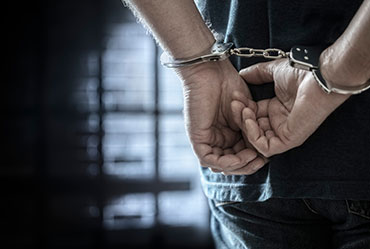Search

Facing a felony charge in Wisconsin is a serious matter, and understanding the nature of the charge is critical to preparing a legal defense. Among the various classifications, Class B felonies are among the most severe crimes in the state. If you or someone you know is dealing with a Class B felony charge, it’s essential to understand the potential penalties, common offenses under this category, and your legal rights.
In Wisconsin, felonies are classified from Class A (most severe) to Class I (least severe). A Class B felony is the second-most serious classification of crime in the state, just below Class A.
Class B felonies typically involve violent crimes or those that have resulted in serious harm or risk to others. Conviction can result in decades of prison time, steep fines, and a permanent criminal record, affecting all areas of life—from employment to housing and even civil rights like voting or owning a firearm.
Wisconsin law outlines strict sentencing guidelines for Class B felonies. If convicted, an individual could face:
For example, the court might impose 40 years of confinement and 20 years of supervision, depending on aggravating factors such as the use of a weapon, prior criminal history, or harm to victims.
Extended supervision comes with conditions such as regular check-ins with a parole officer, drug testing, and restrictions on travel or association.
Several serious crimes fall under the Class B felony classification. Common examples include:
These crimes are typically characterised by intent, violence, or extreme recklessness. They often result in significant physical or emotional harm to victims, which is why the legal system treats them so severely.
Beyond prison time and supervision, being convicted of a Class B felony in Wisconsin can lead to life-altering consequences, such as:
These collateral consequences often extend far beyond the actual sentence and can hinder reintegration into society even after time is served.
If you’re facing a Class B felony charge, it’s vital to retain a qualified criminal defense attorney as early as possible. Potential legal defenses may include:
A defense attorney can help negotiate plea deals, challenge the prosecution’s evidence, and present mitigating circumstances to the court. In some cases, it may be possible to reduce the charge or obtain alternative sentencing.
While expungement (clearing your record) is available in some Wisconsin cases, it is generally not available for Class B felonies due to their severity. However, your attorney may help you explore other post-conviction relief options, such as:
A Class B felony charge in Wisconsin carries severe penalties and long-lasting consequences. Whether you’re facing charges or supporting someone who is, understanding your legal rights and options is the first step toward building a strong defense.
Prompt legal guidance can make a crucial difference in the outcome of your case. Always consult a trusted criminal defense attorney to navigate the complexities of Wisconsin’s legal system.